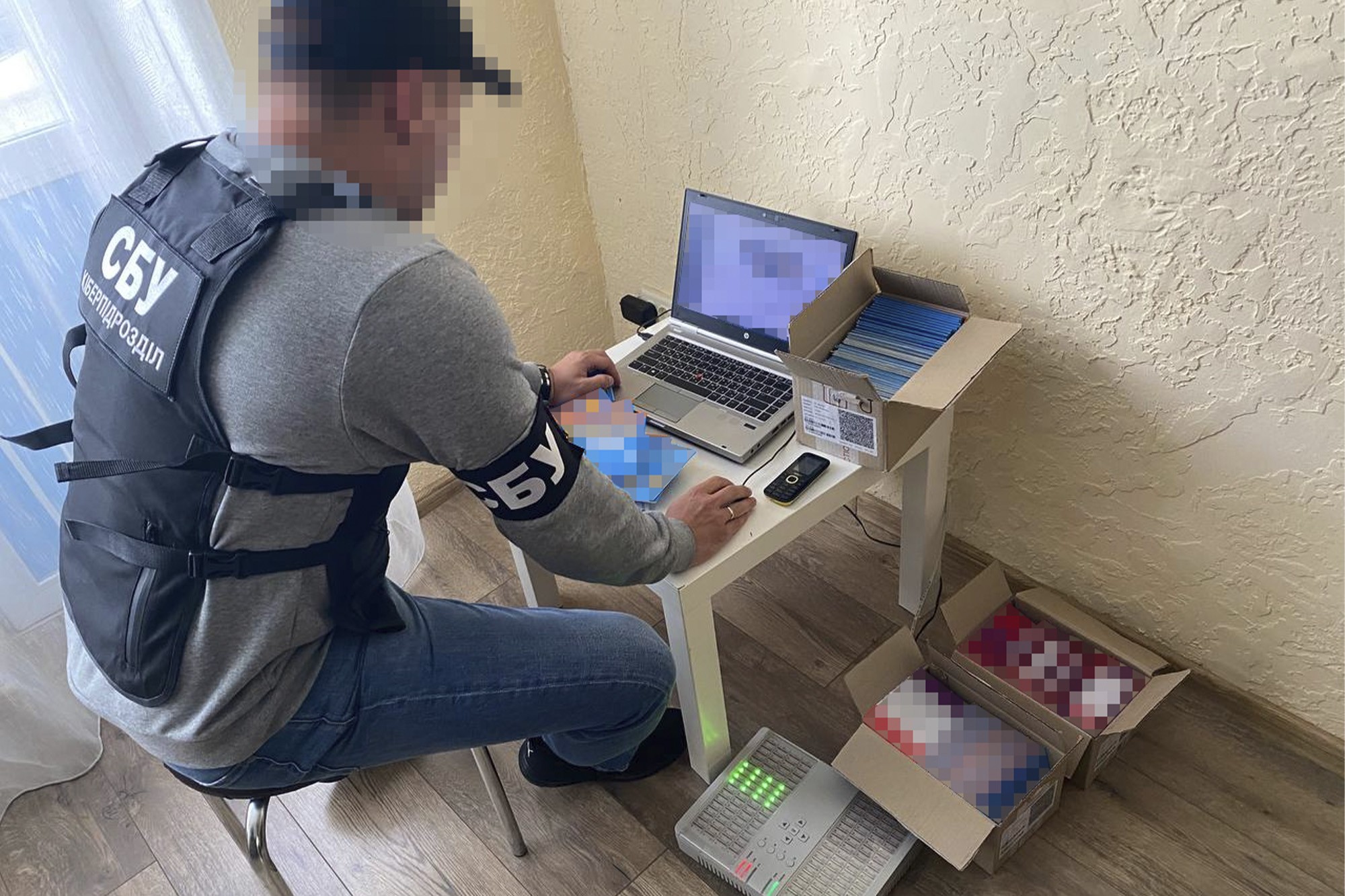The Russian handlers designed the bot farm as a tool to disseminate fake information among Ukrainian Internet users aiming at discrediting the Ukrainian authorities and disrupting the national vaccination program, according to the SBU report published on 17 September.

According to the investigation, the coordinator and administrator of the revealed bot farm was a female resident of Dnipro. Russian commissioners provided her with all the necessary telecommunications equipment and software and were configuring it remotely.
The woman set up the software and hardware appliance in an apartment rented for this occasion. Using the kit, she used to administer more than 5,000 accounts on Facebook, which allegedly belonged to Ukrainian citizens, although those actually used fake personal data.
On a regular basis, the commissioners provided the farm administrator with bogus stories to be boosted on social media. In addition, she had to actively create new sham user profiles.

According to SBU, the administrator received payment for his services through unnamed “electronic payment systems banned in Ukraine” (probably, the Russian payment service Yandex.Money and/or Webmoney, – Ed.).
Within the criminal proceedings, the SSU detectives are conducting a pre-trial investigation and seized the alleged pieces of evidence of the involvement of the individuals in illegal activities, including computer equipment and “hundreds of SIM-cards of a mobile operator.”
The operation was conducted by the SBU Office in Dnipropetrovsk Oblast under the supervision of the SBU Cybersecurity Department, and the procedural guidance of the Dnipropetrovsk Oblast Prosecutor’s Office.
Disrupting activities of a Russian bot farm in Dnipro isn’t an isolated incident: the Security Service of Ukraine has been revealing and shutting down such networks regularly.
For example, just a day before the reporting on liquidating the farm in Dnipro, SBU is reported to have shut down a similar bot farm in north-eastern Kharkiv Oblast, where another individual “disseminated information on social networks aimed at disrupting vaccination in Ukraine, justifying Russia’s armed aggression in eastern Ukraine, and discrediting Ukrainian authorities.” The Kharkiv farm had reportedly registered an “army” of about 50,000 fake social media accounts in the course of its activity, those were handed over to Russian customers.[/editorial]

To name just a few of many other similar cases:
In May 2021, SBU detained a Cherkasy local who had been paid in rubles via Russian online payment services for hosting on his property a bot farm to provide anonymous access for Internet propagandists, who, according to SBU, used to “spread misinformation about the events in ORDLO (Russian-occupied part of Ukraine’s Luhansk and Donetsk oblasts, – Ed.), pro-Russian propaganda aimed at artificially destabilizing the situation in the country, overthrowing the constitutional order and territorial integrity of our country.”

Also, in May 2021, SBU liquidated a 2,500 bot strong farm in Chernihiv. The agency reported, that the bots were operated remotely by the farm’s Russian commissioners.
In the fall of 2020, SBU reportedly shut down a bot farm in Kyiv, “sponsored from the territory of the Russian Federation.” The farm utilized SIM cards of Ukrainian mobile operators and used its capacities in an attempt to manipulate public opinion during the local election campaign, mass spreading black PR messages across social media.

In July 2020, SBU disrupted the activities of a bot farm based in the small Azov coast city of Berdiansk, where a local operated some 500 internet bots, registered using SIM cards of Ukrainian and Russian operators. The fakes disseminated by the farm were “aimed at creating panic during the coronavirus pandemic and discrediting the actions of the Ukrainian authorities.”
Further reading:
- The Kremlin’s chaos strategy in Ukraine and its helpers
- The pro-Russian network behind coronavirus riots in a small Ukrainian town (2020)
- Facebook takes down 122 Russian military intel accounts that targeted Ukraine (2020)
- Internet troll confession: “We provoke a new level of aggression in our victims”
- MH17 crash days: Russian trolls generated over 100K tweets, at least 65K to blame Ukraine
- Facebook takes down Ukrainian troll farm pages. Here is how they worked
- The sad life of Putin’s “Troll Army”
- Bot accounts published 55% of Russian-language tweets about NATO in May-July 2019
- Internet bots are key players in propelling disinformation: study of 9 countries (2017)
- Zaporizhzhia Oblast: the next flash-point in Russia’s hybrid aggression
- Russian troll farms behind campaign to topple Ukraine’s government (2016)


